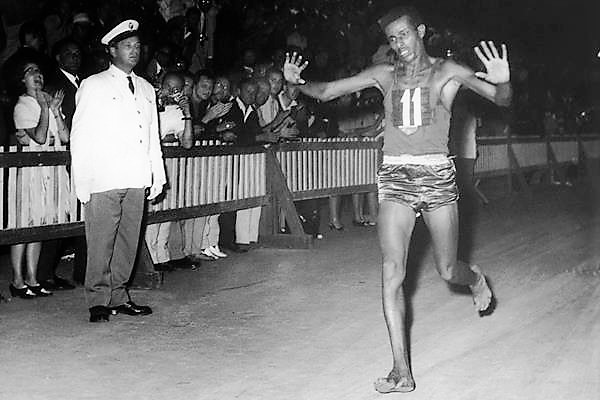10 Fun Facts About Ethiopia
1 Comments
Image courtesy of Sarah Bradford
Projects Abroad has been running volunteer projects in
Ethiopia for over 5 years. Even after all this time we’re still
discovering new things about this amazing country.
Did you know, for example, that there are areas of Ethiopia
covered in snow? No? Well here are 10 other fun facts about
Ethiopia that you probably didn’t know:
1. Ethiopia is about 7.5 years behind the United Kingdom.
This is because Ethiopia is the only country in the world to
have 13 months in a year. Ethiopians also celebrate New Year
in September, meaning that they are currently only a couple of
months into the year 2006, whilst we near the end of 2013.
2. Ethiopians measure time from when the sun rises and
count time on the opposite side of the clock. When the sun
rises at 6 o’clock it is said to be 12 o’clock – the start of the
day in Ethiopia. Confused? Don’t worry, you get used to it
after a few days!
3. There are over 80 different languages spoken in Ethiopia.
The most widely spoken of these are Oromo and Amharic.
Luckily for foreign travellers, English and Arabic are also
widely spoken.
4. Ethiopian children must learn both their tribal language
and the country’s official language of Amharic. They must
also have a good grasp of English by the time they start
secondary school. From the age of 12 onwards, all school
lessons are carried out in English.
5. The legendary Ark of the Covenant, the relic said to hold
the 10 Commandments, is claimed to be housed in a church
in Ethiopia. Only one man, the guardian, is actually allowed to
see the ark, so whether or not it is actually there remains a
mystery.
6. Ethiopia is one of only two nations in the world never to
have been occupied. This is despite the Italians twice trying
and failing to take the country. In case you were wondering,
Russia is the other country.
7. Ever heard Rastafarians talking about Haile Selassie? He
was an Ethiopian Emperor, born in 1892 and is worshipped by
followers of the Rastafarian movement. He is not to be
confused with legendary distance runner Haile Gebre Selassie!
8. Ethiopia is the only country in Africa with its own alphabet.
Actually it uses an abugida, also known as an alpha-syllabary,
which consists of 209 symbols and 25 letter variants.
9. The oldest fossil skeleton of a human was discovered in
Ethiopia. So too was coffee, making Ethiopia the home of
mankind and mankind’s favourite wake-up drink.
10. Ethiopian Abebe Bikila was the first African to win gold in
the Olympic Games. He finished the marathon in first place
after running the whole race barefoot.
10 Fun Facts About Ethiopia
1 Comments
Image courtesy of Sarah Bradford
Projects Abroad has been running volunteer projects in
Ethiopia for over 5 years. Even after all this time we’re still
discovering new things about this amazing country.
Did you know, for example, that there are areas of Ethiopia
covered in snow? No? Well here are 10 other fun facts about
Ethiopia that you probably didn’t know:
1. Ethiopia is about 7.5 years behind the United Kingdom.
This is because Ethiopia is the only country in the world to
have 13 months in a year. Ethiopians also celebrate New Year
in September, meaning that they are currently only a couple of
months into the year 2006, whilst we near the end of 2013.
2. Ethiopians measure time from when the sun rises and
count time on the opposite side of the clock. When the sun
rises at 6 o’clock it is said to be 12 o’clock – the start of the
day in Ethiopia. Confused? Don’t worry, you get used to it
after a few days!
3. There are over 80 different languages spoken in Ethiopia.
The most widely spoken of these are Oromo and Amharic.
Luckily for foreign travellers, English and Arabic are also
widely spoken.
4. Ethiopian children must learn both their tribal language
and the country’s official language of Amharic. They must
also have a good grasp of English by the time they start
secondary school. From the age of 12 onwards, all school
lessons are carried out in English.
5. The legendary Ark of the Covenant, the relic said to hold
the 10 Commandments, is claimed to be housed in a church
in Ethiopia. Only one man, the guardian, is actually allowed to
see the ark, so whether or not it is actually there remains a
mystery.
6. Ethiopia is one of only two nations in the world never to
have been occupied. This is despite the Italians twice trying
and failing to take the country. In case you were wondering,
Russia is the other country.
7. Ever heard Rastafarians talking about Haile Selassie? He
was an Ethiopian Emperor, born in 1892 and is worshipped by
followers of the Rastafarian movement. He is not to be
confused with legendary distance runner Haile Gebre Selassie!
8. Ethiopia is the only country in Africa with its own alphabet.
Actually it uses an abugida, also known as an alpha-syllabary,
which consists of 209 symbols and 25 letter variants.
9. The oldest fossil skeleton of a human was discovered in
Ethiopia. So too was coffee, making Ethiopia the home of
mankind and mankind’s favourite wake-up drink.
10. Ethiopian Abebe Bikila was the first African to win gold in
the Olympic Games. He finished the marathon in first place
after running the whole race barefoot.








